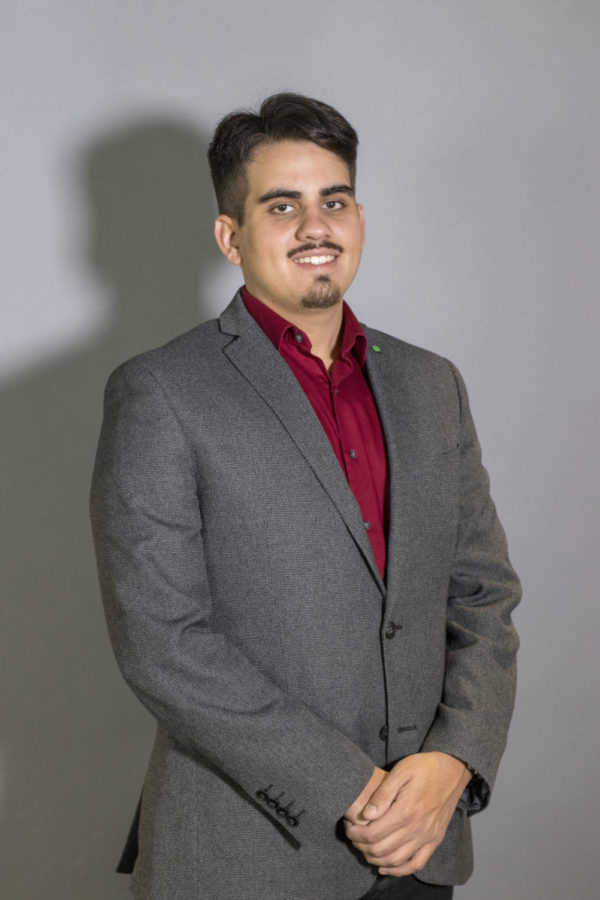I am more than my accent
March 29, 2019
I was born and raised in San Juan, Puerto Rico. All my schooling was done in Catholic schools; nonetheless, I switched schools three times in odd years, which in a huge city, like San Juan, meant immersing myself in a completely new environment with completely new people.
Every time I switched, I always felt I had something to prove. I needed to show that I was worth being accepted in that environment. This led to me being extremely involved and always looking for opportunities to prove myself. Fortunately, this also developed my passion for service and leadership. However, one of my regrets was how I became resentful of my accent.
I was always mocked for my accent when I read or spoke (which, in part, I blame myself for not standing up for myself) and then I brought that self-shame with me when I came to Iowa State. I constantly questioned whether people would take me seriously or listen to me because of it.
Now that a couple of years have passed since moving to Ames and my accent has slowly faded into the background, I’ve begun to regret my hate towards it. Because behind my accent are my parents, Edmy and Juan, who have worked tirelessly most of their life to provide me with the best education and opportunities and, when growing up, would never hesitate to put food on my plate before theirs.
Behind my accent is the story of my grandparents, Victor and Iris, the former who served in Vietnam to provide better opportunities for his family and the latter who kept the family together and, without being asked or owing anybody, would always be first in line to help me and my brother succeed.
Behind my accent are the countless family members and mentors throughout my life that have all contributed to shaping me into the man I am today. Thanks to all of them, I had the courage to go thousands of miles away from home to pursue an education. Thanks to them, I overcame my fears, ran and succeeded at becoming the Student Body Vice President at Iowa State. Thanks to them, I owe many of the future successes that are to come.
I am more than my accent.
Because I am passionate about service. I believe in recognizing one’s potential to help others and their community and working hard to live up to that potential.
I decided I wanted to be the Student Body Vice President because I felt I could be a good advocate for students and be a vehicle for change on campus. Through my previous involvements in Student Government, I considered that I had been a good representative of my constituents and delivered results. Thus, when I was offered to run as Vice President, I was confident that it would be the best way for me to serve students.
My approach to leading is by being a servant leader. By servant leadership, I mean that my main objective as a leader is to serve others, no matter if they are my team, my constituents and/or my organizations. With service as guiding principle, I feel confident as a leader that I am making the right decisions.
I am driven by results. When faced with obstacles, I like to think about what I’m trying to achieve and what the ideal end-result looks like. This gives me motivation to roll up my sleeves and put it in the work to overcome that obstacle. While I may fail the first time, I just need to remind myself of why I’m doing what I’m doing to get up and try again.
I’d want my legacy to be one of tireless service.
To me, inclusivity means that there is space where everyone feels and can feel welcome. Often times, we overuse this term or just assume it on the broader term of “diversity” but, as leaders, we need to understand the difference.
If we want to strive for diversity, then we seek out people with a variety of experiences that differ from ours that can enrich a team and ensure holistically successful results. But, with diversity we need inclusion.
How are we supposed to expect diverse teams to execute to the best of their abilities if there is not an inclusive environment for them to do so? This is a challenge that there is no easy fix and we need to continuously challenge ourselves to do better at.
You do not need to be the best at everything. As leaders, you need to first recognize your weaknesses to recognize what you need. What you need can take the form of team members with specific abilities, advice from your mentors, or knowledge in a certain area. If you start leading under the assumption that you can do everything, that is setting yourself up for failure or a mediocre outcome.
I am more than my accent.

















